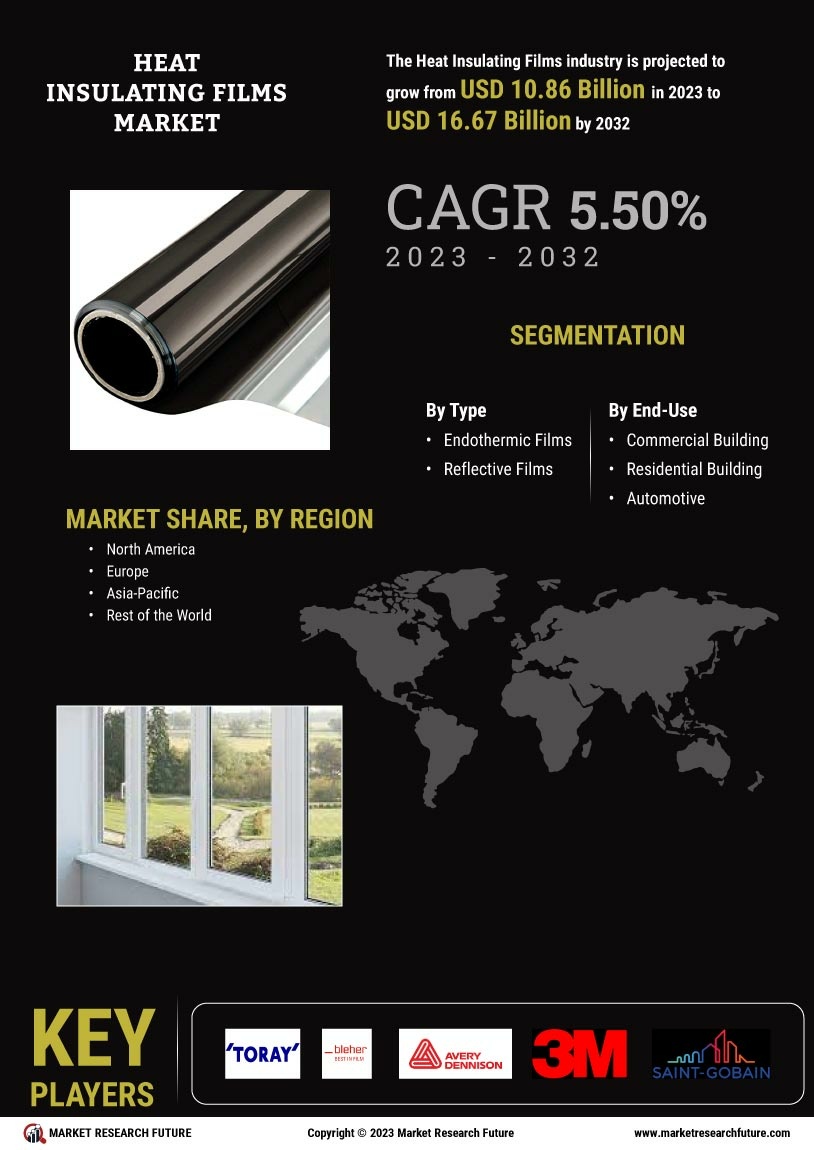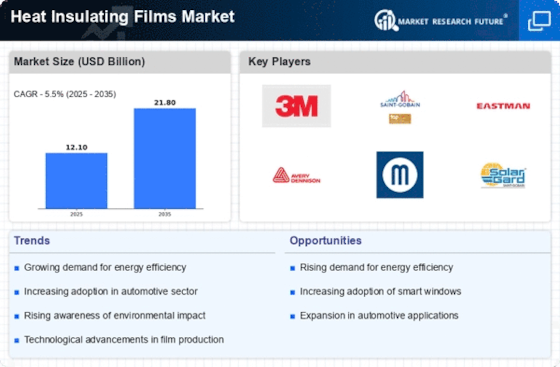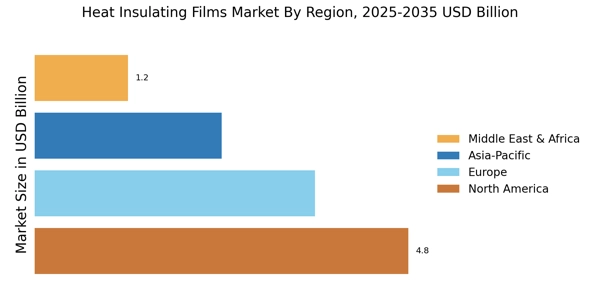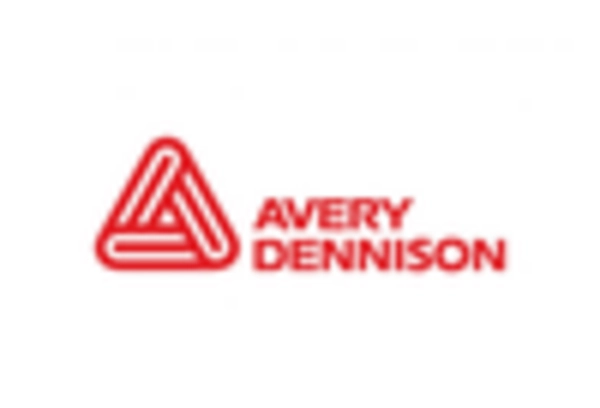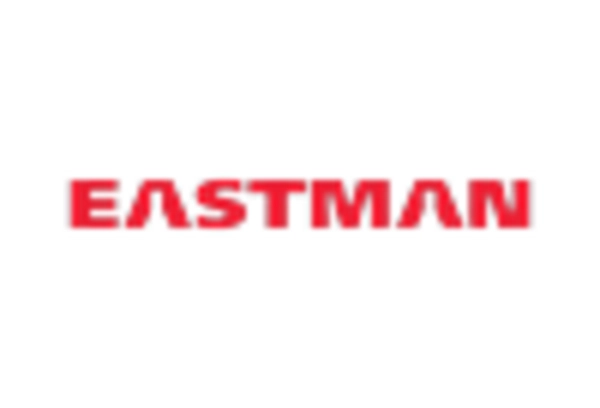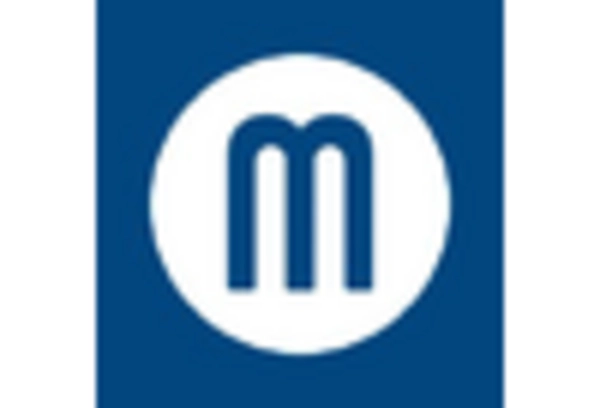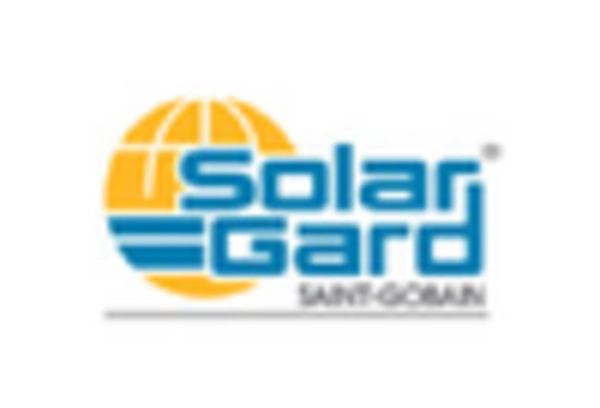Rising Energy Costs
The escalating costs of energy are propelling the demand for energy-efficient solutions, including heat insulating films. As energy prices continue to rise, consumers and businesses are increasingly seeking ways to reduce their energy consumption. This trend is particularly evident in the construction and automotive sectors, where heat insulating films are being adopted to enhance energy efficiency. The Heat Insulating Films Market is witnessing a surge in demand as these films help in maintaining optimal indoor temperatures, thereby reducing reliance on heating and cooling systems. According to recent data, the market is projected to grow at a compound annual growth rate of approximately 8% over the next five years, driven by the need for cost-effective energy solutions.
Technological Innovations
Technological advancements in the production and application of heat insulating films are enhancing their performance and expanding their applications. Innovations such as improved adhesive technologies and multi-layered film structures are making these products more effective in insulating against heat transfer. The Heat Insulating Films Market is benefiting from these developments, as they allow for greater customization and efficiency in various applications, including residential, commercial, and automotive sectors. As manufacturers continue to invest in research and development, the market is likely to see an influx of new products that offer superior thermal insulation properties, thereby attracting a broader customer base.
Growing Environmental Concerns
Heightened awareness of environmental issues is driving the demand for sustainable building materials, including heat insulating films. As consumers and businesses become more conscious of their carbon footprints, there is a growing preference for products that contribute to energy conservation and reduced greenhouse gas emissions. The Heat Insulating Films Market is poised to benefit from this shift, as these films not only enhance energy efficiency but also promote sustainable practices in construction and renovation. This trend is likely to accelerate market growth, as more stakeholders prioritize eco-friendly solutions in their projects.
Increased Building Regulations
Stringent building regulations aimed at improving energy efficiency are significantly influencing the Heat Insulating Films Market. Governments and regulatory bodies are implementing policies that mandate the use of energy-efficient materials in construction. This regulatory push is fostering a favorable environment for the adoption of heat insulating films, as they contribute to compliance with energy efficiency standards. For instance, many regions are now requiring buildings to meet specific thermal performance criteria, which can be effectively achieved through the application of heat insulating films. This trend is expected to drive market growth, as more construction projects incorporate these films to meet regulatory requirements.
Expansion of the Automotive Sector
The automotive industry is experiencing a notable expansion, which is positively impacting the Heat Insulating Films Market. As vehicle manufacturers increasingly focus on enhancing fuel efficiency and passenger comfort, the demand for heat insulating films is on the rise. These films are being utilized in automotive windows and interiors to reduce heat buildup, thereby improving energy efficiency and comfort levels. The market for heat insulating films in the automotive sector is projected to grow significantly, driven by the need for innovative solutions that align with consumer preferences for energy-efficient vehicles. This trend indicates a promising future for the heat insulating films market as it adapts to the evolving needs of the automotive industry.
